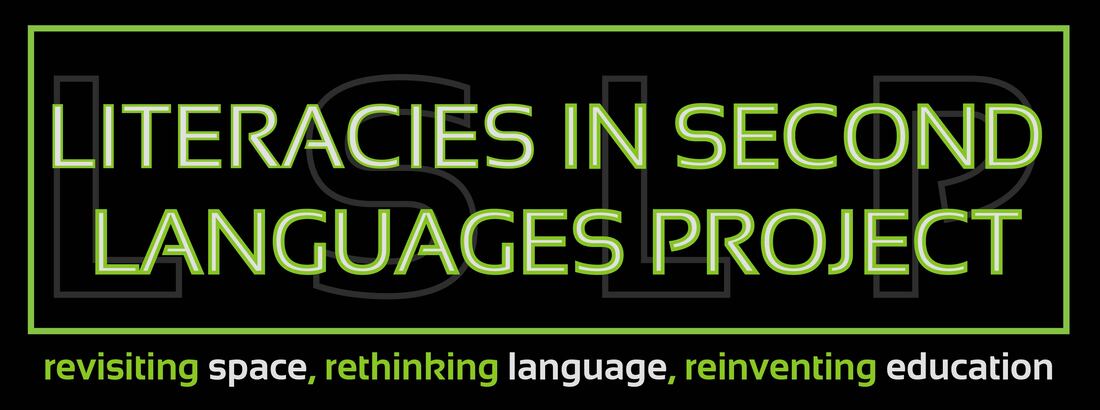When we first chartered LSLP back in 2012, we started just looking at urban literacies as second language practices. This initial vision was reflected in the first motto we proposed, "Rethinking literacies in the cities and the cities as literacies." In 2018, we proposed a new motto (which remains relevant to this day) that better encompassed our collective vision for LSLP. The new motto includes three goals for our research, teaching, and advocacy efforts:
Revisiting Space
Our research in the community literacies line has always been interested in exploring how literacy practices operate in urban and virtual spaces. We have been walking the city and exploring the world of videogames while proposing original conceptual frameworks to study such spaces (namely, our notions of City as Literacy and Language-as-Victory). Through our work, we have discovered new layers for the city and new forms of language play in virtual spaces. As we continue questioning those out-of-school places, we will soon begin to look at literacies in rural spaces as our next frontier, not as opposition to the urban but as part of a language flow across regions linked geographically and culturally. Our first forays into virtual spaces have been through videogames, but we are aware that there are more virtual venues where literacy practices in second languages are taking place. What places will we explore and how? That is a question that some of our future researchers will surely tackle in due time. Our explorations of space have also raised questions about the learning possibilities in and beyond regular school settings. We have begun looking at museums as learning sites and we foresee exploring more alternative venues in the near future.
Rethinking Language
How should we frame language, languages, and languaging in years to come? What new frameworks will emerge to make sense of how glocal literacies are shaping up? As our world moves forward, these questions need to be part of growing research agendas. At LSLP, we believe that our work should contribute to these issues. Notions such as LaV, for example, may help us understand how second language users move across physical and virtual and negotiate language. Our reflections on polylanguaging and translanguaging will also help us understand the multiple layers present in today's literacy practices as moving across two or more languages becomes a regular affair, especially in places conventionally conceived as monolingual. Further questions about how to break the second/foreign language binary will require scholarly communities to seek stronger critical frameworks to disrupt issues of language inequity and marginalization. We must come together and think of research and pedagogical frameworks that become moments of advocacy and activism, moments that raise voices that have long remained silent in our studies. We foresee more research that embraces critical consciousness as an essential feature of how we look at language in our communities and schools and how this leads to a different form of praxis ingrained in equity and empowerment.
Reinventing Education
The 21st century, with all its social, technological, and environmental challenges and questions, may well be a time of opportunity. Education and schooling need to carefully reconsider current practices and face the necessary transformations to remain relevant. As a community of committed educators, we believe that reinvention is the way forward. Our notion of "literacies in second languages" is an invitation to seek transformative practices in today's second language classrooms around the world (and especially in the global south as a chief player in these new scenarios). Schools and teacher education programs must become places to do research, to play with languages, to unearth new narratives and seek alternative ways to study and assess our social and educational phenomena. That is part of our motivation as a research team. Specifically in our school literacies research line, we wish to explore and create new instructional practices, to push the boundaries of school-based research methods, to propose new frameworks to study literacy practices in our schools and how they may be catalysts for change in our communities and societies.


